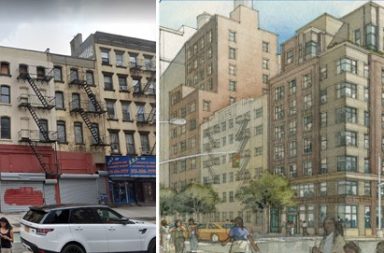EVERYONE knows that prop erty taxes are going up, but the reality is they’re going up more than you think.
First, the tax-rate change upward is not the reported 7 percent, it is 7.5 percent. Mayor Bloomberg had previously dropped the average tax rates by 7 percent to $11.423 per $100 of assessed value from $12.283 – and a greater hike is now needed to get back to the same place.
Then, because of legislative snags, last July’s tax bills were calculated based on the prior fiscal year’s different tax rates.
As a result, a small increase was coming for all but Class 4 commercial properties, which will get a small decrease. That is all factored into the new property-tax statements, which can already be viewed online at nyc.gov/finance.
In addition, under a new agreement with the City Council, those properties with an assessed value of up to $250,000 may pay on a quarterly basis. Because of the late billing, that legislation provides a grace period for those properties to pay without interest by Jan. 30.
The remaining 47,000 properties have until Jan. 2.
“We’re working on a bill to extend the date for large property owners to pay without interest through Jan. 16, 2009,” said Owen Stone, a spokesman for the city’s Department of Finance.
So far, no one has asked the Real Estate Board of New York to prod members to pay early.
“The city wants the cash flow and a lot of our members are ready to pay,” said Steven Spinola, president of REBNY. “It would be nice if they knew the amounts and when it was due.”
Watch what happens on Jan. 15. That’s when Finance Commissioner Martha Stark releases the tentative property-tax assessment roll for fiscal year 2010.
The market value of the whole city is likely to have dropped from the $807.4 billion she announced in January 2008. Due to the slowing economy, that figure rose a mere 1.44 percent from the $796 billion figure revealed in June 2007.
Unless formally challenged and changed, that tentative assessment is the number on which the city will base property owners’ July 2009 tax bill.
Despite being caught up in a broken and distressed real-estate market, property owners will probably still see higher assessed values and pay more in taxes than they did the year before.
The Finance Department would like all one- to three-family homes to be assessed at 6 percent of market value. Since the average home is valued at just 3 percent, many homeowners could see assessments rise to 6 percent, as allowed by law, even as many struggle with foreclosure.
Last January, as the market began to fall, Class 1 properties’ market value declined by 2.76 percent. Overall, home values should drop even more, despite the fact that individual assessments can rise.
Back in September, larger buildings handed in real property income-and-expense statements based on healthy 2007 numbers. And for the second time, apartment buildings are being assessed using the “down and dirty” gross income multipler (GIM).
Spinola says GIM is diverting as much as 30 percent of buildings’ incomes to taxes.
Yet even if Stark were to acknowledge a drop in the city’s fair-market value, it probably wouldn’t impact property owners because of the city’s arcane tran sition assessment sys tem for apartments and commercial properties.
That’s because even if there was a drop in fair-market value, so-called actual assessments – which are pegged at 45 percent of the market value – will also start falling.
Owners pay taxes based on the lesser of either the “actual” or so-called transition assessment, and right now most owners pay on the “transition” number. The transition scheme was designed to smooth out tax increases in a rising market, but it also trails a declining market. And given that transitions are still on their way up, taxes will go up for most property owners.
While the city loses out on capturing the big tax dollars in an increasing market, owners lose in a declining market.
“On the office side, we will be hit with that [upward movement of the transitions] for the next two years because of the [old high] rent rolls,” Spinola noted.
The “actual” assessed values are unlikely to drop lower than the transitions until January 2010 – and therefore, most properties won’t get tax relief until at least January 2011. [email protected]









